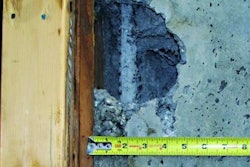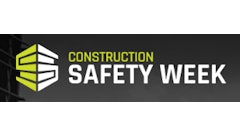You need cash to buy construction equipment and construction products. You need cash to build up inventory and cash to fund overhead.
These cash needs are quite obvious and well publicized. However, one cash need isn't so well known nor oft mentioned: you need cash to fund MISTAKES.
Every business owner makes mistakes. Mistakes in estimating. Mistakes in hiring. Mistakes in strategy. Mistakes in client selection. Mistakes in marketing. Mistakes cannot be avoided. And each mistake sets your finances back a step or two.
This brings to mind a piece of advice given to me way back in 1980 when I was a snot-nosed college intern working for a pipeline company in the Texas panhandle. The plant's crusty superintendent walked up next to me and joined me while waiting for the mechanic to repair a gas compressor that had blown a valve. Out of the blue, this man who rarely talked, told me "If a man can be right 51% of the time, he can be rich. Everyone makes mistakes, lots of them. You must always plan for them."
And so do you. You need to build a financial nest egg, a safety net if you will, take help you overcome the mistakes you encounter while growing your business to the next level.
If you're lucky a mistake will not set you back - it will only cost you an opportunity to make more money. Alas, even during the good times, that is rarely the case in construction. Rarely does a contractor have to turn down a great paying job just because his crews are impossibly tied up.
Guy loves to preach that profit starts in the field. Unless each of your jobs is producing fruit (profit) you're not going to be able to build up the nest egg you need to comfortably grow your business. Your crews must, absolutely MUST, be highly productive. We'll come back to this issue in the next article or two.
As you probably know, we often mention that your business needs to maintain a line of credit equal to 10% of your sales. That advice came to us from commercial lenders. We've never seen evidence that contradicts their rule of thumb. Of course getting them to grant a line of that size is darn near impossible.
In light of the insanely tight lending standards currently in play, you can start with the assumption that your nest egg needs to be at least 10% of your ANTICIPATED sales. That's quite a sum and certainly not easy to build up - especially considering current competitive pressures and the painful bite of income taxes.
As you start generating the type of profit that is required to build up your nest egg quickly, income tax becomes a significant problem. It is so hard to resist the temptation to buy hard assets that can be depreciated. The problem with that strategy is that hard assets aren't liquid. They can't cover payroll, insurance bills, or inventory bills. You can borrow against them but then you're throwing money away on interest.
Many business owners prepay for expenses at year end to avoid taxes. That works great the first year but means you will not have those expenses to offset next year's income.
At some point if you want to grow, you will need to leave considerable cash accessible somewhere somehow. The cash doesn't have to be inside your company, but it must be able to be brought into the company via loan (yes, you can be your own line of credit) or stock purchase.
As if funding growth wasn't a good enough reason on its own, nest eggs affect competitive position...that affects profit.
Older construction companies often enjoy a significant cost advantage. They typically have very low debt. Their equipment is usually pretty much paid off. They also tend to have significant nest eggs.
Having a nest egg and minimal debt allows them to steal a job now and then. It allows them to work for slow paying clients. Few contractors can afford to work for clients who take up to 90 days to pay. Competition narrows greatly. Reduced competition leads to higher margins.
Here's the moral of the story, if you choose to pursue growth without possession of a sizable nest egg be very careful in choosing your clients and watch EVERYTHING like a hawk. Research your market. Research your competition. Research the banks. Exhaustively research job applicants. Work twice as hard as you have been. The only way to survive growth without a sizable nest egg is to reduce your mistakes substantially. When you don't have a fat roll of bills in your pocket, you aren't going to survive a bad client, a bad employee in a key position, or a blown estimate. You simply do not have room for error.



















